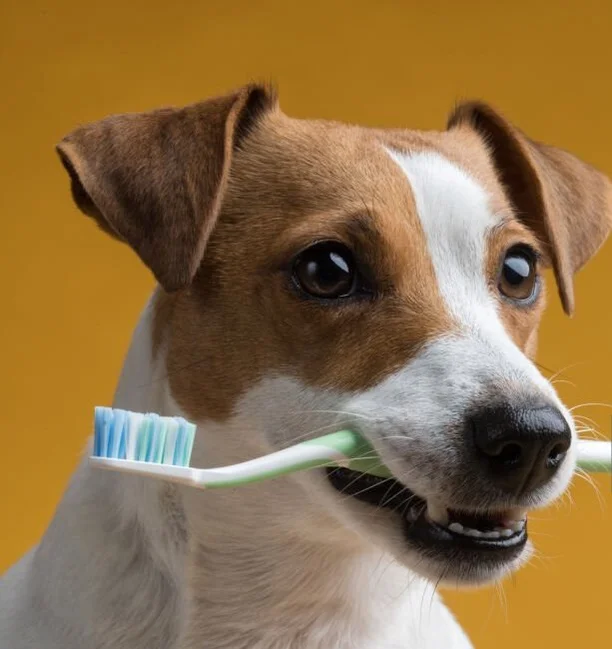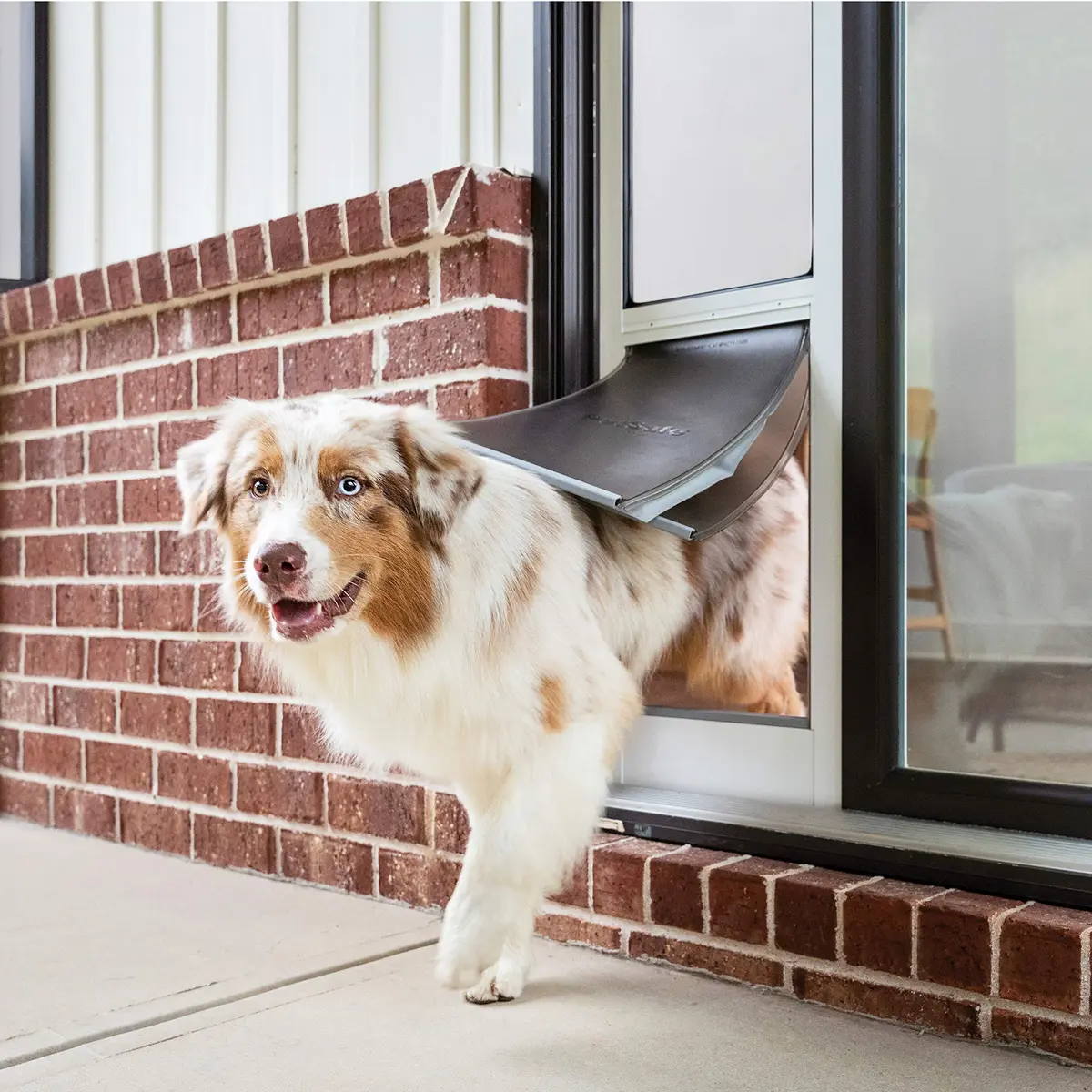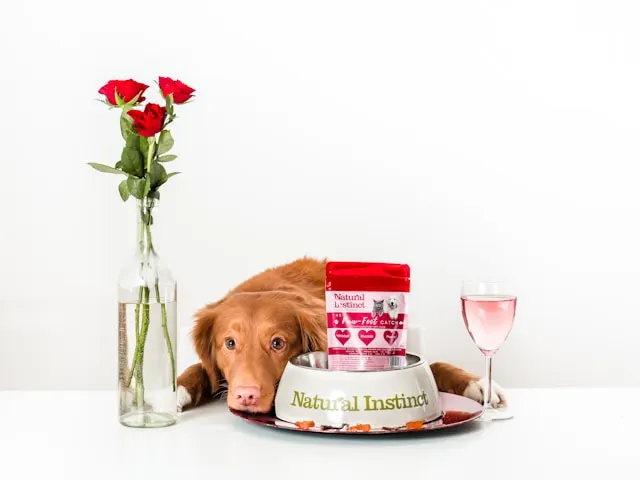As pet parents, we do everything we can to keep our fur babies happy and healthy. We invest in high-quality food, soft beds, and the best toys money can buy. But how often do we think about their teeth? Just like us, our pets need proper dental care to maintain not only their oral health but their overall well-being too. Dental problems can sneak up on pets, leading to pain, discomfort, and even serious health issues if left untreated.
But don’t worry—taking care of your pet’s teeth doesn’t have to be complicated or overwhelming! Let’s dive into how you can help your pet achieve a sparkling smile (and fresh breath!) while being mindful of the planet.
Why Dental Care for Pets is Crucial
Did you know that 80% of dogs and 70% of cats develop dental disease by the age of three? That’s a staggering number! Plaque and tartar buildup can lead to gingivitis, infections, and even systemic diseases affecting your pet’s heart, kidneys, and liver. What starts as a little bad breath could escalate into a serious health problem.
But here’s the good news—regular dental care can prevent most of these issues. When you prioritize your pet’s dental health, you’re not only keeping their mouth clean but also saving them from painful extractions and costly vet visits down the road. And, let’s be real, no one wants to be on the receiving end of their pet’s stinky breath!
How Often Should You Brush Your Pet’s Teeth?
Ideally, you should brush your pet’s teeth daily, but we know life gets busy, and some pets can be resistant to the whole brushing thing. If daily brushing seems impossible, aim for at least a few times a week.
Here’s a quick guide to help you out:
- Start early: If your pet is still young, now’s the perfect time to introduce tooth brushing as a part of their routine. Older pets might need a little more patience, but with the right approach, it’s never too late to start.
- Use the right tools: You’ll want a pet-friendly toothbrush and toothpaste. Human toothpaste contains ingredients like fluoride and xylitol, which can be toxic to pets. Opt for natural, pet-safe toothpaste with flavors like chicken or peanut butter to make the experience more enjoyable for them.
- Take it slow: Start by getting your pet used to you handling their mouth. Gently lift their lips and reward them with treats. Then, introduce the toothbrush gradually—no need to rush!
- Make it fun: Turn tooth brushing into a bonding experience! Offer plenty of praise and rewards to make the process less stressful for your pet. It may take some time, but with consistency, brushing can become a routine part of your pet’s care.
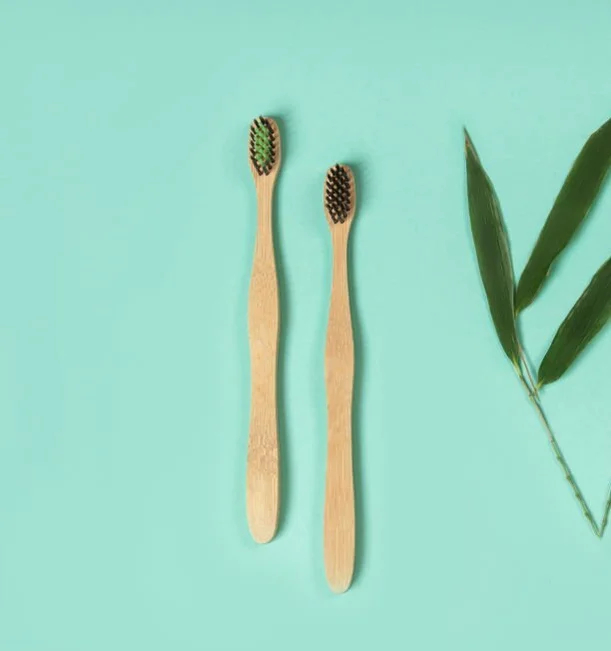
Now, you might be wondering, “Can dental care really be eco-friendly?” The answer is a resounding yes! There are plenty of sustainable products available that can keep your pet’s mouth clean without harming the planet.
- Biodegradable toothbrushes: Look for brushes made from bamboo or recycled materials. These options are not only gentler on the environment but also just as effective as traditional plastic toothbrushes.
- Natural toothpaste: You don’t want any harmful chemicals in your pet’s mouth, and eco-friendly toothpastes made from organic, non-toxic ingredients are the way to go. Brands like Earthbath and Vet’s Best offer natural solutions that are free from artificial additives and chemicals.
- Dental wipes: For pets who won’t tolerate brushing, consider using eco-friendly dental wipes. They’re a great alternative for keeping plaque at bay while minimizing your environmental footprint.
Opting for these products can make a significant impact over time, not just for your pet’s health but also for the planet.
DIY Dental Care Solutions
If you’re feeling crafty, you can whip up some DIY pet dental care solutions right at home. These are simple, safe, and all-natural.
- Homemade toothpaste: You can make a basic toothpaste using ingredients like coconut oil, baking soda, and a dash of parsley (for fresh breath). It’s easy to mix up, and you’ll know exactly what’s going into your pet’s mouth.
- Dental chews: There are plenty of natural chews on the market, but you can also make your own! Frozen carrots or sweet potato slices are great for dogs, while cats might enjoy a sturdy, crunchy toy to gnaw on.
- Diet matters: The food you feed your pet plays a role in their dental health. Crunchy, natural treats or kibble can help scrape plaque off their teeth, acting as a natural toothbrush.
These DIY solutions are not only cost-effective but also a great way to reduce waste.
Signs Your Pet Needs Professional Dental Care
Even with regular brushing, some pets might still need a professional dental cleaning from time to time. But how do you know when it’s time to call the vet?
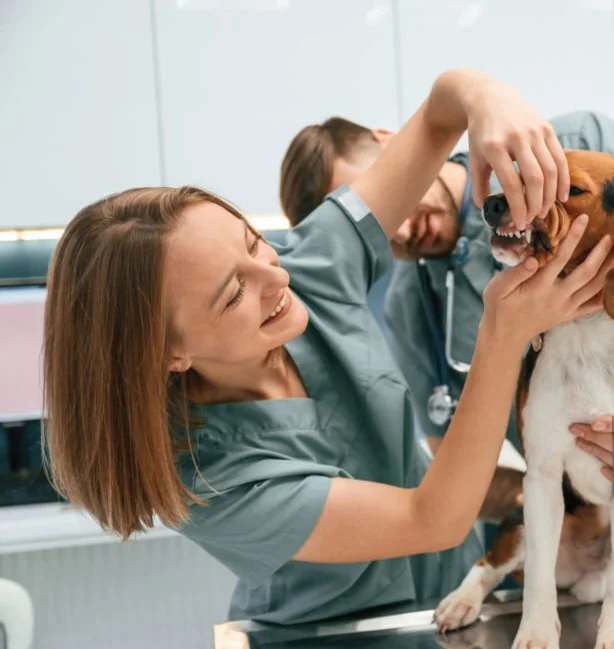
- Bad breath: While a little odor is normal, persistent foul breath is often a sign of dental disease.
- Red or bleeding gums: If your pet’s gums are inflamed, it could indicate gingivitis.
- Difficulty eating: If your pet starts chewing on one side of their mouth or avoiding hard food, it could be a sign of dental pain.
- Loose or broken teeth: Any visible tooth damage should be checked out by a vet.
When in doubt, schedule a dental check-up with your veterinarian. They can perform a thorough cleaning, remove any built-up tartar, and assess your pet’s overall oral health. While professional cleanings may seem costly, they’re far less expensive than treating severe dental disease down the road.
Preventing Dental Issues with Proper Nutrition
Did you know that what you feed your pet can play a huge role in their dental health?
- Crunchy foods: Feeding your pets hard kibble, especially those designed for dental health, can help scrape away plaque. Raw bones (appropriate for your pet’s size) can also act as a natural toothbrush.
- Avoid sugars and starches: These ingredients can stick to your pet’s teeth and contribute to plaque buildup, leading to decay over time.
- Hydration matters: Make sure your pet always has access to fresh water. Drinking helps wash away food particles and keep their mouth cleaner between brushings.
By making the right dietary choices, you can help your pet maintain healthy teeth and gums.
When it comes to dental care for pets, a little effort goes a long way. Regular brushing, using eco-friendly products, and maintaining a healthy diet are all key components of keeping your pet’s mouth clean and disease-free. Not only will this improve their quality of life, but it’ll also save you from the stress (and cost) of dealing with more serious dental issues down the line.
So, grab that toothbrush and start a new routine today! Your pet might not thank you now, but their pearly whites (and fresh breath) will be all the reward you need.
Want more tips on keeping your furry friend healthy and happy? Join our pet-loving community! Sign up for our newsletter to get eco-friendly pet care advice, exclusive content, and fun ideas delivered right to your inbox. We promise—it’s all about making life easier (and greener) for you and your pets!

